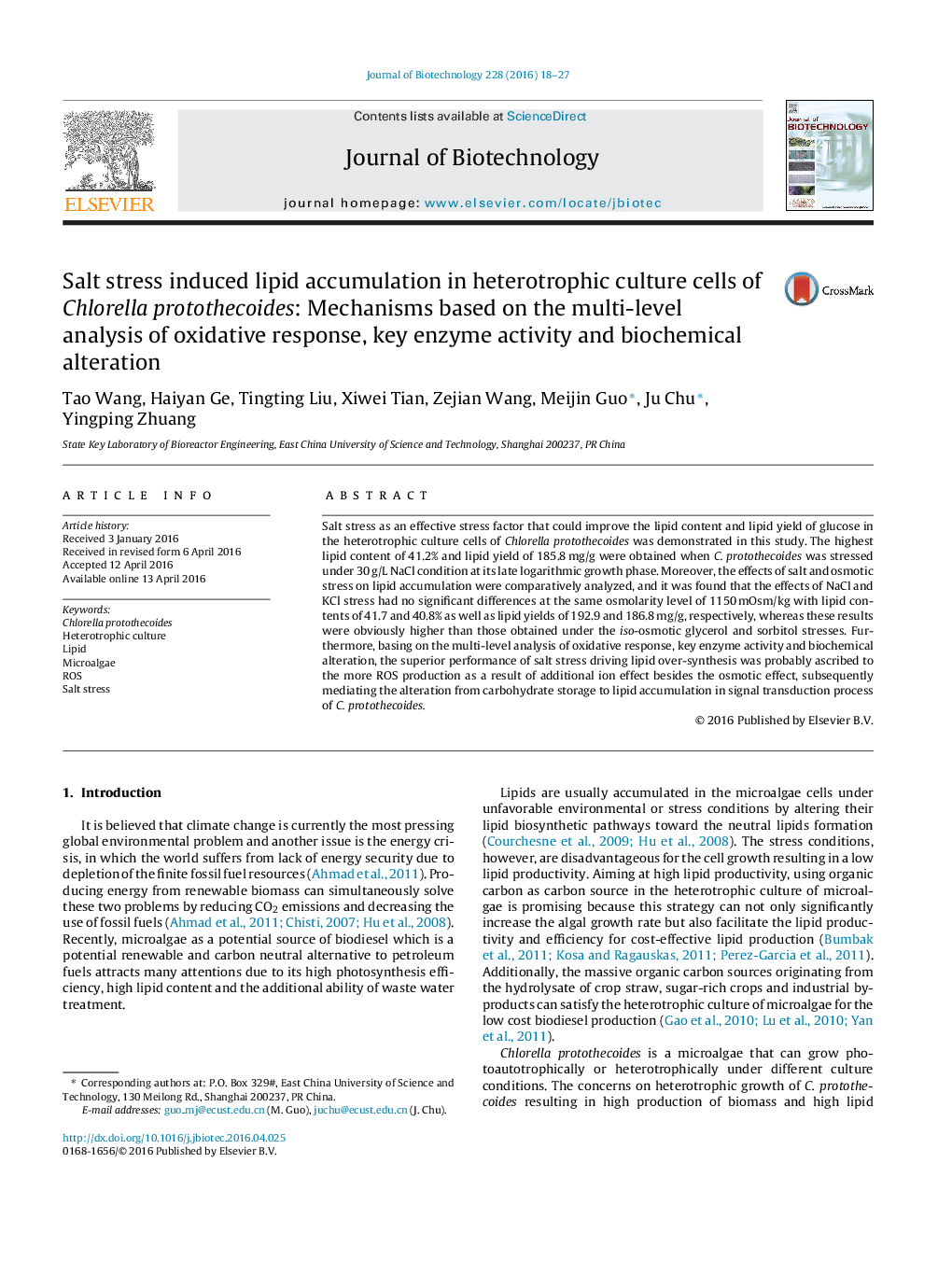| Article ID | Journal | Published Year | Pages | File Type |
|---|---|---|---|---|
| 6490524 | Journal of Biotechnology | 2016 | 10 Pages |
Abstract
Salt stress as an effective stress factor that could improve the lipid content and lipid yield of glucose in the heterotrophic culture cells of Chlorella protothecoides was demonstrated in this study. The highest lipid content of 41.2% and lipid yield of 185.8Â mg/g were obtained when C. protothecoides was stressed under 30Â g/L NaCl condition at its late logarithmic growth phase. Moreover, the effects of salt and osmotic stress on lipid accumulation were comparatively analyzed, and it was found that the effects of NaCl and KCl stress had no significant differences at the same osmolarity level of 1150Â mOsm/kg with lipid contents of 41.7 and 40.8% as well as lipid yields of 192.9 and 186.8Â mg/g, respectively, whereas these results were obviously higher than those obtained under the iso-osmotic glycerol and sorbitol stresses. Furthermore, basing on the multi-level analysis of oxidative response, key enzyme activity and biochemical alteration, the superior performance of salt stress driving lipid over-synthesis was probably ascribed to the more ROS production as a result of additional ion effect besides the osmotic effect, subsequently mediating the alteration from carbohydrate storage to lipid accumulation in signal transduction process of C. protothecoides.
Related Topics
Physical Sciences and Engineering
Chemical Engineering
Bioengineering
Authors
Tao Wang, Haiyan Ge, Tingting Liu, Xiwei Tian, Zejian Wang, Meijin Guo, Ju Chu, Yingping Zhuang,
